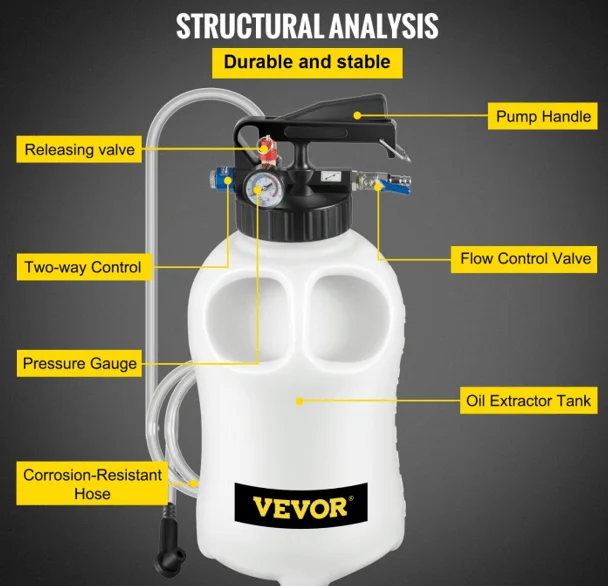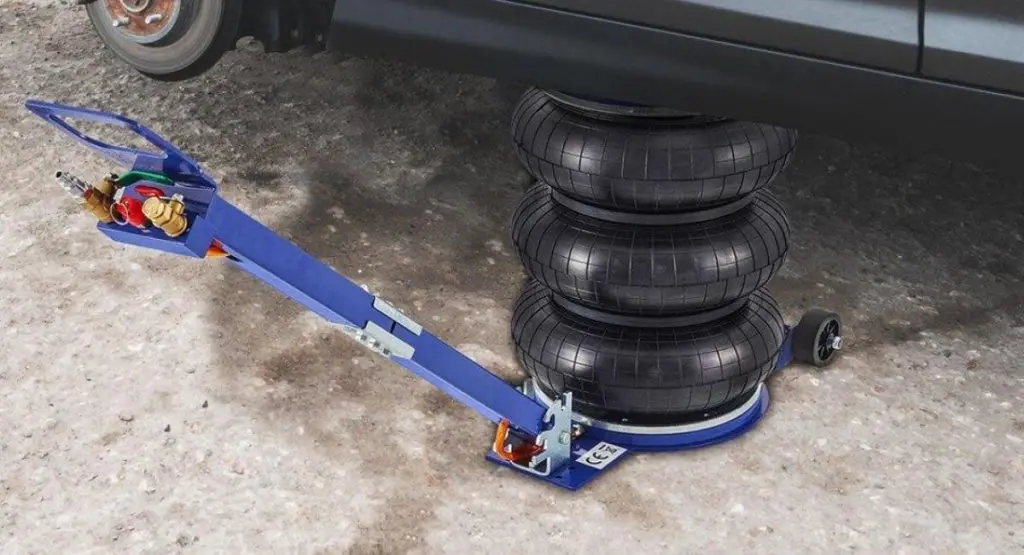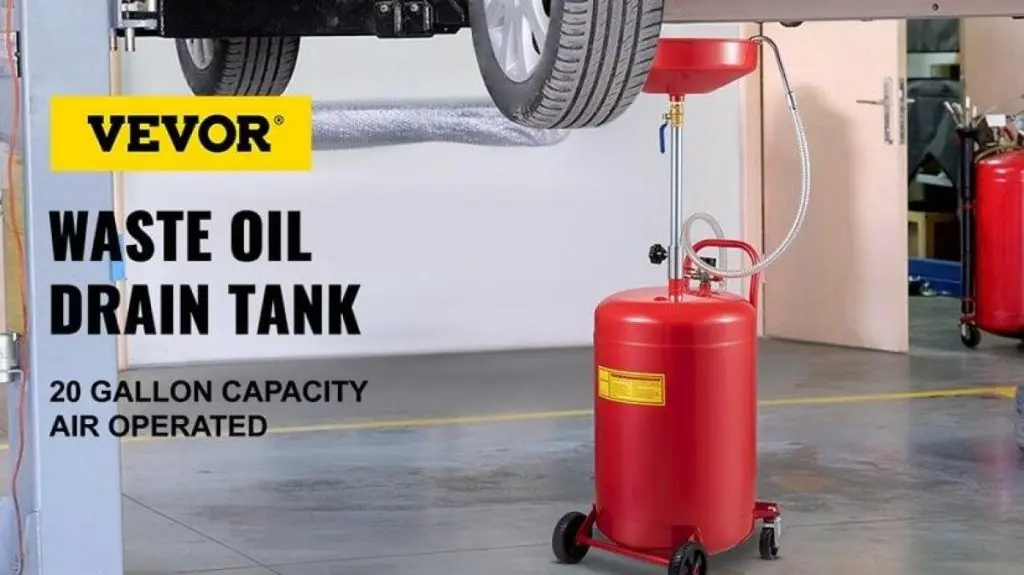Are you tired of dealing with transmission issues in your vehicle? It may be time to brush up on the basics of your transmission fluid pump. Learn everything you need to know with our comprehensive guide to Transmission Fluid Pump 101 – from understanding how it works to identifying common problems and maintaining them for optimal performance.
Say goodbye to transmission headaches and hello to smooth driving. Don’t let a little thing like a pump ruins your ride. Get ahead of the game and master your transmission fluid pump today!
Importance of Transmission Fluid Pump
When it comes to maintaining your vehicle, understanding the inner workings of your transmission is crucial. And what’s the heart of your transmission, you ask? The transmission fluid pump. This little but mighty component is responsible for keeping your transmission running smoothly; without it, you’re in trouble.
Don’t worry. We’re here to ensure you know this essential piece of machinery. This article is your ultimate guide to the transmission fluid pump, and it will be a wild ride.
So, put on your seatbelt, and get ready to learn everything you never knew you needed to know about the transmission fluid pump, from how it works to how to maintain it and everything in between. Trust us. You’ll want to pay attention because a bit of knowledge goes a long way to keep your vehicle in tip-top shape.
Top 5 Transmission Fluid Pump
When it comes to maintaining your vehicle, one of the most important things you can do is regularly check and replace your transmission fluid. Manually draining and refilling transmission fluid can be messy and tedious. That’s where a transmission fluid pump comes in. These pumps make it easy to extract old fluid and refill it with new, saving you time and effort.
We’ve compiled a list of the top 5 transmission fluid pumps on the market, with the VEVOR Transmission Fluid Extractor Dispenser at the top. This pump is a versatile and efficient option that is perfect for any DIY mechanic or professional mechanic.

1. VEVOR Transmission Fluid Pump
The VEVOR Transmission Fluid pump is a top-of-the-line option perfect for extracting and refilling transmission fluid. It has a 10-liter capacity and 14 adapters, making it compatible with many vehicles. The pump is made of high-quality materials and is built to last. It’s also easy to use and comes with detailed instructions.
Since you are interested in this product, you might also want to check VEVOR’s rolling shop stools, diesel heater for van, electric stainless steel meat grinder, and ice melt mats. Trust us. You won’t regret it.
2. Mityvac MV8500 Silverline Elite Hand-Held Vacuum Pump Kit
This pump is a popular option that is perfect for extracting transmission fluid. It has a 2.5-liter capacity and various adapters, making it compatible with many vehicles. The pump is made of high-quality materials and is built to last.
3. MotoMaster Fluid Extractor
This pump is an excellent option for those on a budget. It has a 5-liter capacity and various adapters, making it compatible with many vehicles. The pump is made of high-quality materials and is built to last.
4. OTC 5613 Transmission Fluid Evacuator
This pump is an excellent option for those who need to extract a large amount of fluid quickly. It has a 7.5-liter capacity and various adapters, making it compatible with many vehicles. The pump is made of high-quality materials and is built to last.
5. ABN Power Steering and Automatic Transmission Fluid Extractor
This pump is an excellent option for those who need to extract fluid from both the transmission and power steering systems. It has a 2.5-liter capacity and various adapters, making it compatible with many vehicles. The pump is made of high-quality materials and is built to last.
Types of Transmission Fluid Pumps
When it comes to the inner workings of your car, the transmission fluid pump is often a mystery. But understanding the different types of transmission fluid pumps can help ensure your car is running smoothly.
Gear-type transmission fluid pump
This hood louver is designed to improve the cooling of the transmission fluid, which is crucial for smooth gear shifting and overall transmission health. It’s a perfect option for those who frequently take their Jeep TJ off-road or drive in extreme conditions.
Gerotor transmission fluid pump
This pump uses a rotating gear and an orbiting gear to move the fluid, making it an excellent option for high-performance vehicles. This type of pump is designed to provide a steady and reliable flow of transmission fluid, improving the performance and longevity of your transmission. So, pay attention to this vital component when upgrading your Jeep TJ’s performance.
Vane transmission fluid pump
This pump uses vanes to move the fluid, making it an excellent option for vehicles with high mileage. These pumps help circulate the transmission fluid, keep it cool, and prevent overheating during off-road adventures or heavy loads.
How does the Transmission Fluid Pump Work?
The transmission fluid pump is the unsung hero of your vehicle’s transmission system. It may not get the spotlight, but your transmission would be a hot mess (literally and figuratively) without it. So, let’s give this little pump the credit it deserves and dive into how it works.
The transmission fluid pump’s main job is to pressurize the transmission fluid and distribute it throughout the transmission. Think of it like a heart pumping blood to the rest of your body, but instead of blood, it’s transmission fluid. The pump sucks in the fluid, pressurizes it, and then sends it to where it’s needed.
But how does the pump pressurize the fluid? It’s all about the gears! The transmission fluid pump is essentially a set of gears that spin and create pressure. As the gears spin, they suck in the fluid and compress it, increasing the pressure. This pressurized fluid is distributed throughout the transmission, ensuring everything runs smoothly.
Now, you may think, “That’s all well and good, but why do I need to worry about proper transmission fluid pressure?” Well, think of it this way: if the transmission fluid isn’t at the correct pressure, it can’t do its job properly. Without the proper pressure, the transmission may not shift correctly, leading to clunking or slipping gears. Not to mention, low pressure can also cause damage to the transmission, leading to costly repairs. So, in short, proper transmission fluid pressure = happy transmission = happy you.
Considerations When Buying a Transmission Fluid Pump
When buying a transmission fluid pump, it’s easy to get lost in the sea of options. But fear not, a little bit of know-how and some witty advice. You’ll be a pro at picking the perfect pump in no time.
Compatibility
First and foremost, consider the compatibility of the pump with your vehicle’s transmission. Not all pumps are created equal; using the wrong one can lead to severe transmission troubles. So, before you add to the cart, check that the pump is specifically designed for your make and model of car.
The flow rate of the pump
Next, consider the flow rate of the pump. A higher flow rate means the pump can transfer fluid faster, which can be beneficial if you hurry to finish your transmission fluid change. However, a higher flow rate also means more noise, so you might opt for a lower pump if you’re a light sleeper or have a baby in the house.
Durability
Durability is also a key factor when buying a transmission fluid pump. You want to avoid being stuck with a pump that breaks after one use, so choose one built to last. Look for features such as sturdy construction and corrosion-resistant materials.
Price
Remember the price! There’s no need to break the bank for a transmission fluid pump. Compare prices and features to find the best value for your money.
Are Transmission Fluid Pumps Worth It?
Transmission fluid pumps transfer fluid from the central transmission unit to the cooler. This is an essential component of the car’s cooling system, as it helps to maintain the correct temperature in the transmission. The question is, are these pumps worth it? The answer is yes! In many ways, transmission fluid pumps are indispensable in ensuring the longevity and efficiency of your car’s transmission.

A high-quality transmission fluid pump can differentiate between a smoothly running transmission and one that fails to function optimally. A poorly functioning transmission fluid pump can lead to leaks, overheating, and damage to the gears, which can be costly. On the other hand, a well-functioning pump ensures the transmission is well-lubricated, runs smoothly, and reduces the risk of transmission failure.
Furthermore, using a transmission fluid pump also ensures that the transmission operates at the optimal temperature, increasing its lifespan. This, in turn, increase the resale value of your car and reduces the cost of repairs in the long run. In conclusion, transmission fluid pumps are worth it, as they offer many benefits to the car’s transmission and help to prolong its lifespan. So, if you’re looking to maintain the efficiency of your car, investing in a high-quality transmission fluid pump is a wise choice.
Conclusion
In conclusion, understanding the transmission fluid pump is crucial for ensuring your vehicle’s longevity and smooth operation. Regular maintenance and replacement of the pump can prevent costly repairs and keep your vehicle in top condition. Whether you are a seasoned car enthusiast or a first-time vehicle owner, taking care of your transmission fluid pump should be a top priority. With some knowledge and attention, you can enjoy a smooth and stress-free ride for years. So, take a moment to familiarize yourself with this critical component and keep your vehicle in tip-top shape.
FAQ About Transmission Fluid Pump
1. How do I know if my transmission fluid pump needs to be replaced?
Some signs that a transmission fluid pump may need to be replaced include slipping gears, strange noises, leaks, or poor performance.
2. Can I replace a transmission fluid pump myself, or should I take my car to a mechanic?
Replacing a transmission fluid pump is a complex task and should be performed by a professional mechanic.
3. How much does it cost for a replacement?
The cost of replacing a transmission fluid pump can vary depending on the make and model of your car but typically ranges from $600 to $1,200.





